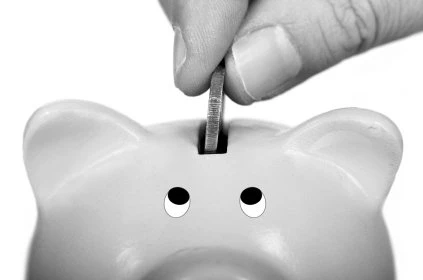 Divorce can be an emotional process, and may also entail figuring out how to handle debt or finances during or after the divorce. Add bankruptcy to the mix, and the compounded stress of bankruptcy and divorce can be overwhelming.
Divorce can be an emotional process, and may also entail figuring out how to handle debt or finances during or after the divorce. Add bankruptcy to the mix, and the compounded stress of bankruptcy and divorce can be overwhelming.
You may be surprised to learn that divorce is one of the leading reasons people file for bankruptcy. Whether a bankruptcy filing makes sense, whether it should be filed jointly with your soon-to-be ex-spouse, and the timing of such depend on several factors. Here are some specific things to consider.
1. Consider Filing Divorce and Bankruptcy Separately
Although bankruptcy and divorce are filed in different courts (divorce is a state court action and bankruptcy is a federal court action), the two legal matters should not overlap. It is not unusual to file bankruptcy before going through a divorce.
When you file for bankruptcy you get protection called the automatic stay. The stay stops all creditor actions and also freezes your assets, including real estate. This enables the bankruptcy court to sort out your assets. The automatic stay stays in effect for the entire bankruptcy. For Chapter 7 filings this is usually 3-4 months. Chapter 13 filings last years.
The splitting of assets is a major portion of the divorce process. Due to the automatic stay during bankruptcy, the family court is unable to properly divide the assets. As a result, it is advisable not to file for bankruptcy and divorce at the same time. If a bankruptcy is pending while the divorce is filed, the divorce will be put on hold until the bankruptcy is finalized. This can cause more stress and anxiety.
2. Which Case to File First Depends on Your Personal Circumstances
As indicated here, you should not file bankruptcy and divorce simultaneously. However, you may still consider which to file first. This is based on your personal circumstances.
In some circumstances, it makes sense to file bankruptcy first. If both you and your spouse (soon to be ex) are on good terms, you might consider filing bankruptcy together before the divorce. This can be beneficial because you can share attorney fees and eliminate joint debt at the same time, while potentially protecting more property. In some jurisdictions bankruptcy exemptions (i.e. the property you get to keep in bankruptcy) are doubled if you file jointly. For example, if the allowed home equity exemption is $60,000 for a single filer, it could be doubled to $120,000.
However, sometimes you may have to wait to file bankruptcy until after your divorce. In order to file Chapter 7 bankruptcy, there is an income threshold test called the means test. In some cases, income from both spouses might put you over the threshold, whereas your individual income will allow you to qualify. It is advisable to discuss these matters with a bankruptcy attorney to best evaluate your situation.
3. Some Debts Are Excluded in Bankruptcy
Bankruptcy can be an effective legal process for eliminating debt. However, there are some types of debts that cannot be discharged. This means you need to pay them back. These include:
- Student loans (in most cases)
- Child support and alimony
- Court fees/penalties
- Child custody attorney fees
- Some types of taxes
- Government fees
4. Chapter 7 vs Chapter 13 in Relation to Divorce
Chapter 7 is relatively short. A typical case lasts three to six months. If you want to file bankruptcy before your divorce, then Chapter 7 is preferred. In comparison, most Chapter 13 cases last for three to five years while you repay debt. Years is not an ideal time frame if you want to get divorced.
If you are already in a Chapter 13 plan and need to file for divorce while the repayment plan is in place, you can cancel or try and restructure the repayment plan.
Contact a Bankruptcy Attorney Today
Although stressful, both bankruptcy and divorce can provide a much needed fresh start. Contact Gregory J. Wald Attorney At Law at 952-921-5802 today for a consultation.


